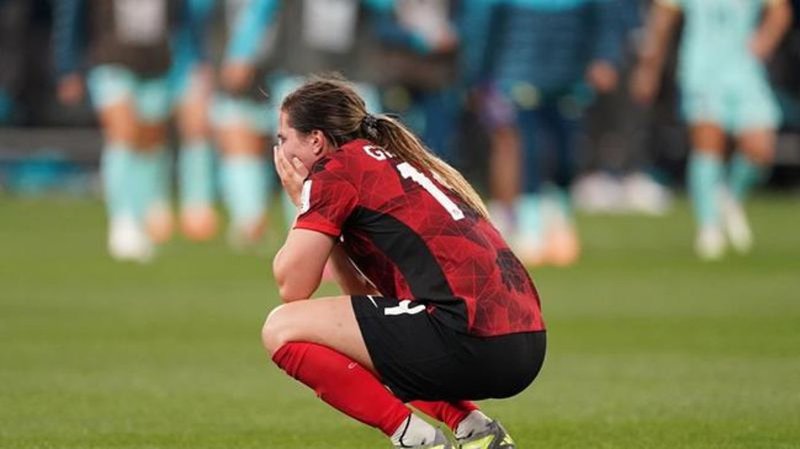
Three passes, 15 seconds trigger Canada’s painful fall at Women’s World Cup
MELBOURNE, Australia — While the final score between Canada and Australia was anything but close, the opening goal in the lopsided 4-0 Matildas’ win showed just how tight the margins can be in world football.
Australian goalkeeper Mackenzie Arnold started the move, after skilfully corralling a hard-hit backpass from a defender under pressure from Canadian Adriana Leon, with a sweeping pass that found Caitlin Foord near midfield. She quickly sent the ball forward to Steph Catley, whose ensuing cross handcuffed centre back Vanessa Gilles and the out-of-position Canadian defence.
The ball found its way through several bodies to Hayley Raso, who beat goalkeeper Kailen Sheridan with a low shot to put Australia ahead after just nine minutes.
The offside flag went up but video review confirmed a good goal, triggering a second eruption from the partisan crowd of 27,706 at Melbourne Rectangular Stadium. FIFA technology showed Gilles’ right arm had put Catley onside when she received the ball.


